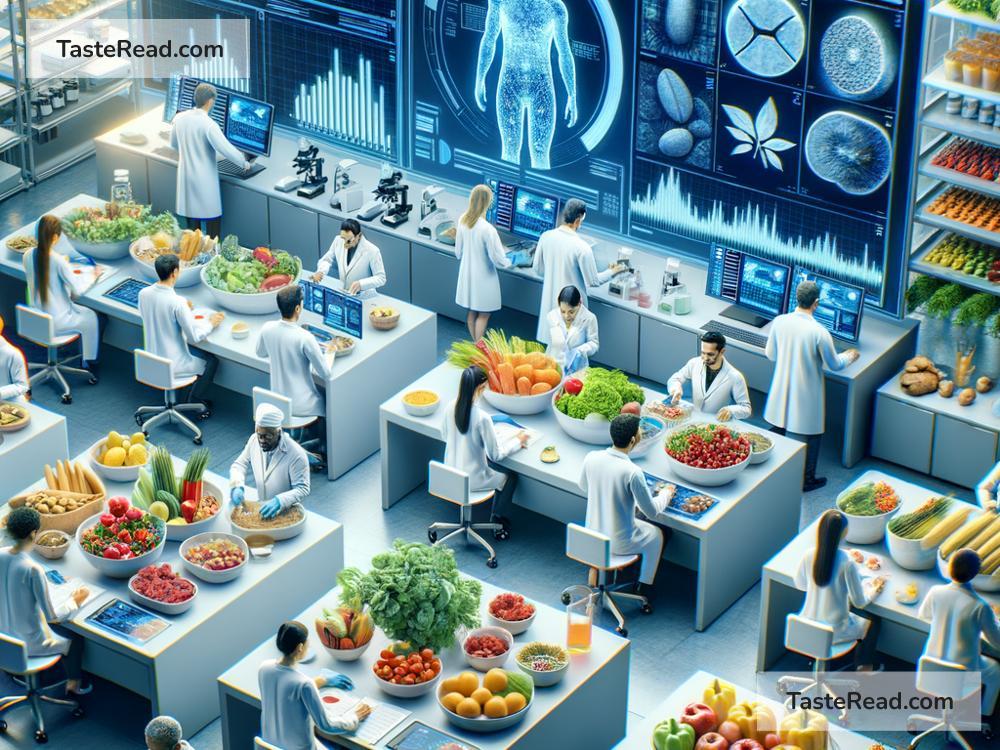The Impact of Food Proteomics on Nutrition
Have you ever wondered what’s really inside your food? Beyond the usual carbs, fats, and proteins listed on the packaging, there’s a microscopic universe at play—proteins—and scientists are exploring how these proteins can improve health and nutrition through a field called food proteomics.
Proteomics is the study of all the proteins in a given system, such as a living organism, a plant, or, in this case, food. In simple terms, proteins are like the building blocks or workers inside cells, performing countless tasks like building tissues, supporting immune functions, and activating enzymes. Food proteomics involves identifying, analyzing, and understanding proteins found in food and how they impact human health.
This research area may sound complicated, but its goal is simple: to help people eat better and live healthier lives. Let’s break it down and explore the incredible impact of food proteomics on nutrition.
Understanding Food at a Deeper Level
Traditionally, researchers have focused on studying the basic components of food, like carbohydrates, fats, vitamins, and minerals, to determine its nutritional value. While these components are important, they only reveal part of the picture. Proteins play an equally vital role in nutrition and health, and they interact with other nutrients in complex and fascinating ways.
Food proteomics enables scientists to uncover the “hidden story” within food proteins. They use advanced tools and technologies, like mass spectrometry, to study what types of proteins exist in various foods, how they function, and how they change during cooking, digestion, or food processing. For example, researchers can pinpoint proteins responsible for food allergies or proteins that have healing properties, like antioxidants.
This deeper understanding helps scientists develop new ways to improve the nutritional value of everyday meals.
Better Nutrition Through Enhanced Foods
One of the biggest opportunities in food proteomics is its ability to create enhanced or “functional foods.” These are foods specifically designed to provide extra health benefits beyond basic nutrition. For example, scientists might discover proteins in certain plants that support heart health or boost immunity. These proteins can then be isolated or combined with other ingredients to create functional foods.
Imagine being able to buy bread, yogurt, or snack bars enriched with proteins that help your body recover faster after workouts or reduce inflammation. Food proteomics makes such advancements possible.
Tackling Food Allergies and Intolerances
Food allergies and intolerances affect millions of people worldwide. Common allergens like peanuts, eggs, and shellfish contain specific proteins that trigger allergic reactions in some individuals. For years, researchers struggled to address this issue, but food proteomics now offers promising solutions.
By studying the proteins that cause allergies, scientists can modify or remove them entirely during food processing. For example, food proteomics is being used to develop hypoallergenic versions of foods like milk and peanuts, allowing people with allergies to enjoy them safely.
Additionally, proteomics can help improve food labeling. Advanced protein analysis ensures that manufacturers can clearly identify any allergens present in packaged foods, helping consumers make better-informed choices.
Boosting Digestibility and Absorption of Nutrients
Proteins don’t just play a role in the food itself—they influence how our bodies digest and absorb nutrients. Certain proteins can make it easier for our digestive systems to break down food or ensure that essential nutrients like vitamins and minerals get absorbed properly.
For example, proteomics research has revealed that some proteins in fruits and vegetables act as carriers for important minerals like iron and calcium, increasing their absorption rates in the body. If scientists can isolate and enhance these proteins, they can develop foods that are more nutritious and efficient in delivering critical nutrients.
Sustainable Food Production
Food proteomics is also helping to tackle bigger challenges, like sustainability in agriculture and food production. As the global population grows, the demand for nutritious food increases—but so does the need to produce food in environmentally friendly ways.
Proteomics allows scientists to study proteins in crops and livestock to make farming more efficient. For example, crop proteins can be analyzed to breed plants that are more resilient to environmental stress, such as droughts, diseases, or pests. Similarly, proteomics can improve livestock productivity by studying the proteins that influence growth, immune responses, and reproduction.
Healthier crops and animals mean healthier food for everyone, produced in ways that protect the planet.
The Future of Nutrition
Food proteomics is still a relatively new field, but it’s growing fast and making a big impact. As technology advances, we’ll be able to learn even more about the proteins in food and how they affect our health.
In the future, personalized nutrition might become a reality. Imagine doctors being able to create custom diets based on your body’s unique protein needs to help you manage chronic diseases, prevent illness, or improve athletic performance.
Food proteomics has the potential to transform not just what and how we eat but also how we view food altogether. It bridges the gap between nutrition and science, allowing us to make smarter choices for our bodies and the world we live in.
Final Thoughts
Food proteomics is quietly revolutionizing the way we understand nutrition. By uncovering the secrets of proteins in food, scientists are finding ways to create healthier diets, address allergies, improve digestion, and even promote sustainability.
The next time you sit down for a meal, think about the incredible science that might one day make your food healthier, safer, and even more delicious—thanks to food proteomics. The future of nutrition is bright, and it all starts with proteins!


